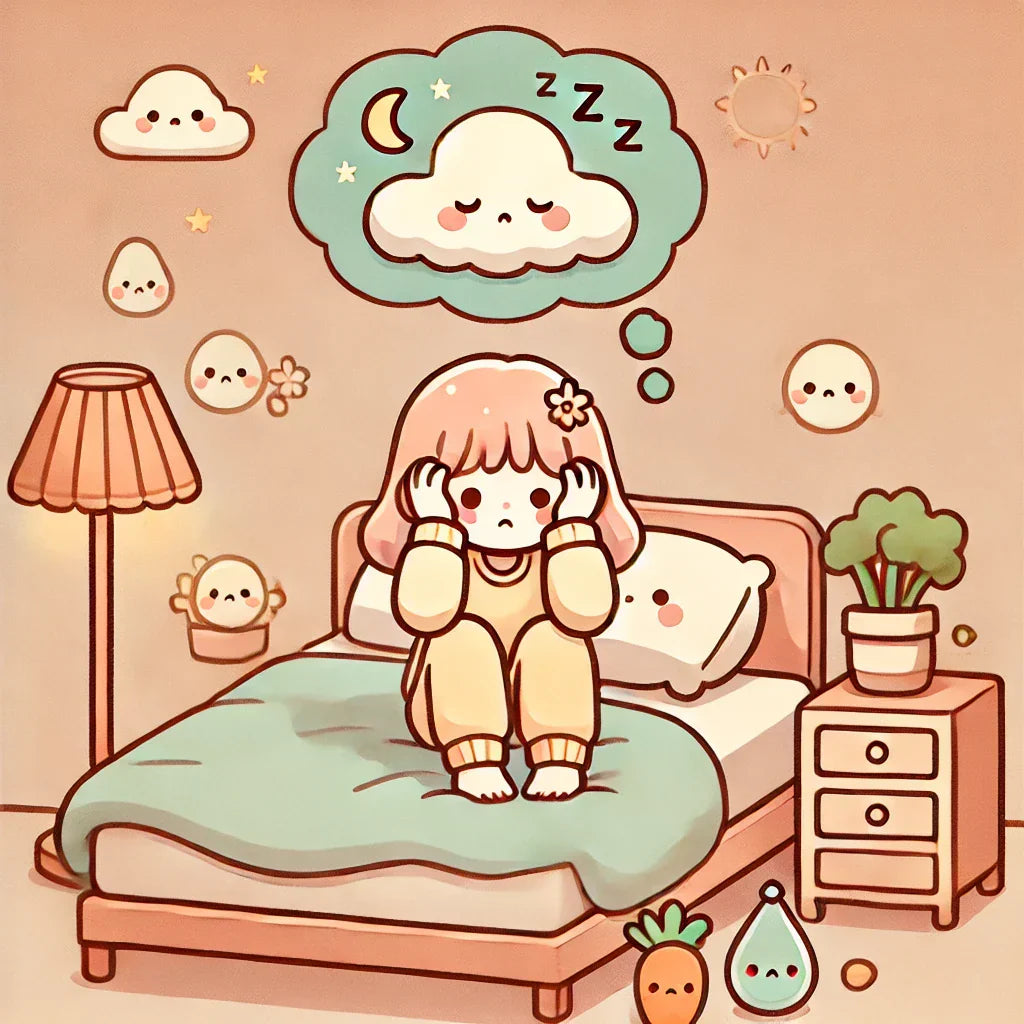Can Lack of Sleep Make You Gain Weight? Here’s What Science Says

In today’s fast-paced world, sleep is often sacrificed in favor of productivity, social events, or entertainment. But what if skimping on sleep does more than just make you feel groggy the next day? Research suggests that a lack of sleep can have a direct impact on weight gain. If you’ve ever wondered, does lack of sleep cause weight gain? or will lack of sleep cause weight gain? science has a clear answer for you.
Let’s explore how insufficient sleep affects metabolism, hunger hormones, and fat storage and what you can do to combat these effects.
The Science Behind Lack of Sleep and Weight Gain
Studies have consistently shown a strong link between sleep deprivation and weight gain. Sleep plays a crucial role in regulating various physiological functions, including appetite control, metabolism, and hormone balance. When you don’t get enough rest, your body’s ability to maintain a healthy weight can be compromised.
1. Sleep Deprivation Disrupts Hunger Hormones
One of the primary reasons lack of sleep symptoms include increased appetite is due to an imbalance of hunger-related hormones:
- Ghrelin: Often called the “hunger hormone,” ghrelin stimulates appetite. Lack of sleep leads to higher ghrelin levels, making you feel hungrier than usual.
- Leptin: Known as the “satiety hormone,” leptin signals to your brain when you are full. Sleep deprivation reduces leptin levels, making it harder to recognize when you’ve eaten enough.
The result? You end up craving and consuming more food, particularly high-calorie, high-carb options that contribute to weight gain. Research published in PLOS Medicine found that sleep-deprived individuals had 15% lower leptin levels and 15% higher ghrelin levels, leading to increased hunger and food intake.
2. Sleep Loss Increases Cortisol Levels
If you’re wondering, is lack of sleep cause weight gain, the answer partly lies in cortisol—the stress hormone. When you don’t sleep enough, cortisol levels rise, signaling your body to conserve energy by storing more fat, particularly around the abdomen.
A study in Obesity Research found that chronic sleep restriction leads to elevated evening cortisol levels, which contributes to increased fat storage and insulin resistance. This lack of sleep weight gain cortisol connection is particularly concerning because excess abdominal fat is linked to various health risks, including heart disease and diabetes.
3. Sleep Deprivation Slows Metabolism
A well-functioning metabolism helps you burn calories efficiently, but lack of sleep can slow it down. Studies indicate that people who are sleep-deprived burn fewer calories at rest compared to those who get sufficient rest.
Research published in the Annals of Internal Medicine showed that participants who slept only four hours per night had a 55% reduction in fat loss compared to those who slept for eight hours. This metabolic slowdown makes it easier to gain weight even if your diet remains the same.
4. Poor Sleep Leads to Late-Night Snacking
When you stay awake longer, the chances of reaching for unhealthy snacks increase. Many sleep-deprived individuals report increased cravings for sugary, salty, and fatty foods. Late-night eating contributes to excess calorie intake, making weight management even more difficult.
A study in The American Journal of Clinical Nutrition found that sleep-deprived individuals consume an average of 385 extra calories per day, mainly from high-fat and high-carb foods.
5. Sleep Deprivation Reduces Physical Activity
Fatigue from inadequate sleep naturally leads to less motivation to exercise. You’re less likely to engage in workouts, whether it’s strength training or cardio, further compounding weight gain. Additionally, muscle recovery is impaired, reducing the effectiveness of any strength training program you manage to complete.
A study published in Medicine & Science in Sports & Exercise reported that individuals who slept less than six hours per night were significantly less likely to engage in regular physical activity compared to those who got adequate rest.
How to Prevent Weight Gain from Lack of Sleep
If lack of sleep symptoms is taking a toll on your waistline, here are some strategies to improve your sleep and maintain a healthy weight:
1. Prioritize Sleep Hygiene
- Set a consistent bedtime and wake-up time, even on weekends.
- Create a relaxing bedtime routine, such as reading or meditation.
- Keep your bedroom cool, dark, and quiet to improve sleep quality.
2. Manage Stress Levels
Since lack of sleep weight gain cortisol is a real concern, managing stress through yoga, breathing exercises, or mindfulness can help lower cortisol levels and reduce fat storage.
3. Watch Your Diet
- Avoid caffeine and heavy meals close to bedtime.
- Incorporate protein and fiber-rich foods to keep you full longer and prevent late-night cravings.
- Include magnesium-rich foods, as magnesium plays a key role in sleep regulation and relaxation.
4. Get Moving
Even if you feel sluggish, try to stay active. A good workout routine helps regulate hormones, improve metabolism, and support better sleep quality.
Final Thoughts: The Sleep-Weight Connection and How MyLustre Can Help
If you struggle with maintaining energy levels and weight management due to lack of sleep, MyLustre’s Vitastixc can be a great addition to your wellness routine. Vitastixc contains magnesium, a crucial mineral known for its role in promoting relaxation and improving sleep quality. Magnesium helps regulate neurotransmitters that calm the nervous system, making it easier to fall and stay asleep, which in turn supports better weight management and metabolism.
By combining proper sleep habits with the right supplements, you can maintain a healthy weight and keep your energy levels high.
Prioritize rest, fuel your body wisely, and let MyLustre’s Vitastixc help you achieve a restful night’s sleep and maintain your fitness and weight management goals!





